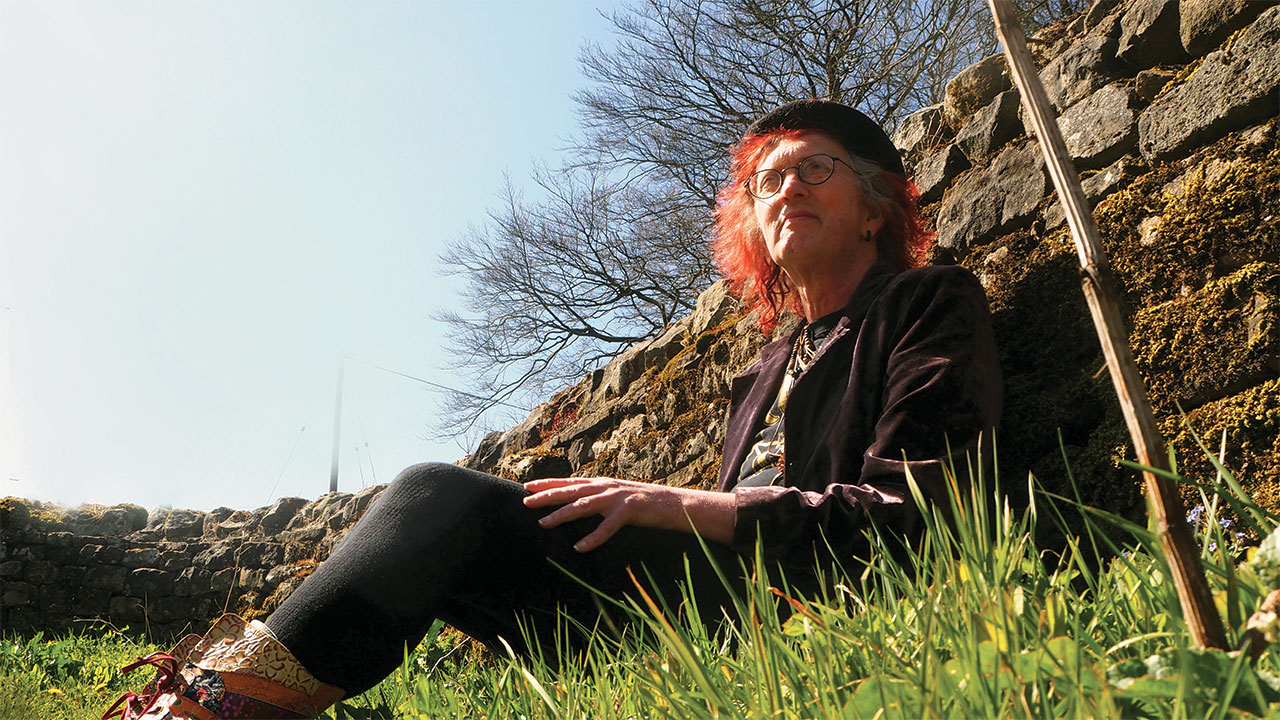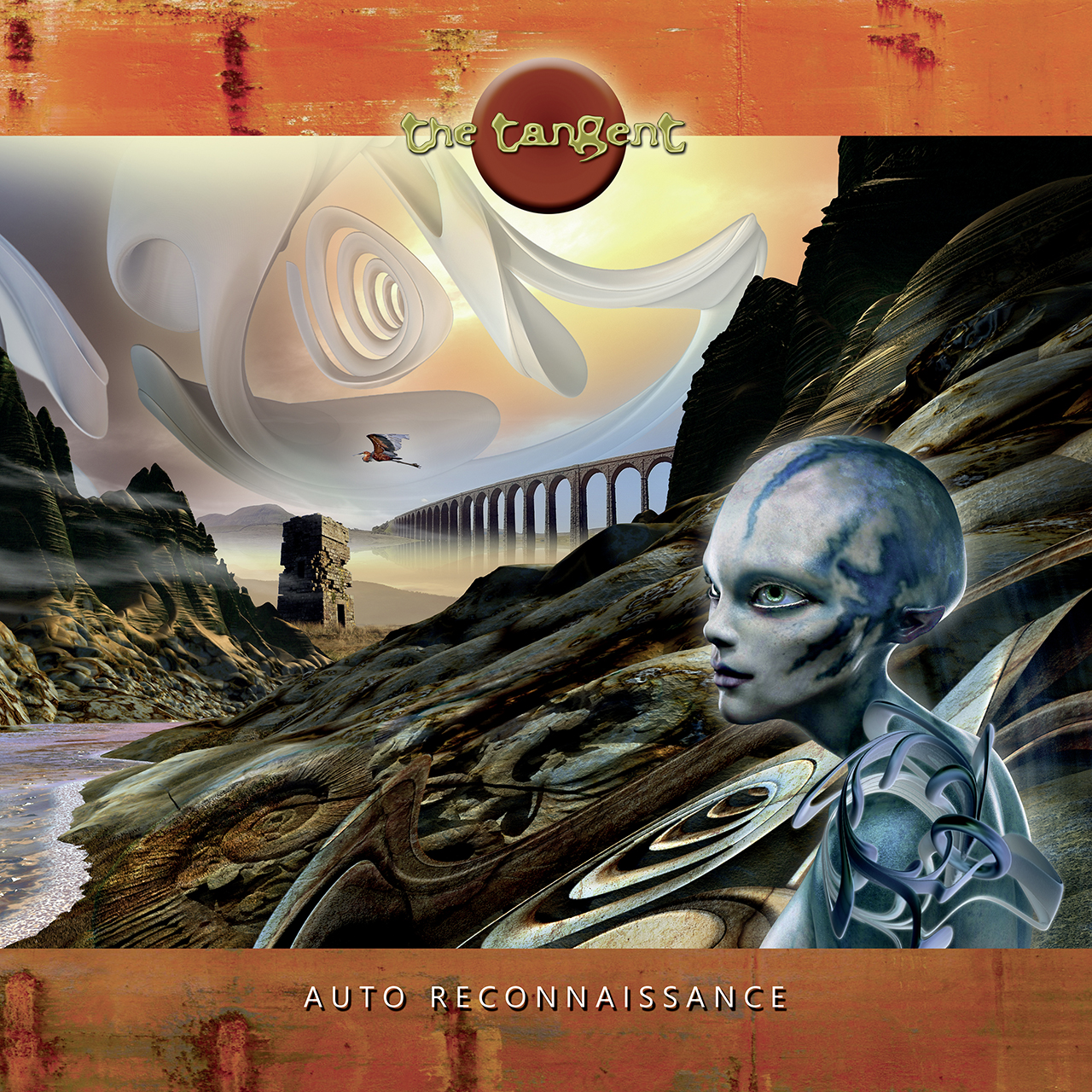"There are keyboard players who are way better than me who have made albums that aren’t as good as mine!" - The Tangent, Andy Tillison and Auto Reconnaissance
Long standing UK proggers The Tangent discuss the creation of their eleventh studio aobum, 2020's Auto Reconnaissance

“Most people my age are starting to think about retirement,” Andy Tillison muses. “Having decided to be a progressive rock musician, I will probably have to work for the rest of my life. There’s no pension, so we just keep going.”
Speaking as his band The Tangent gear up for the release of Auto Reconnaissance, their 11th album, Tillison’s observations shouldn’t be interpreted as a complaint. Aside from being an optimist generally, he’s swift to point out that by virtue of living in the middle of the Yorkshire Dales in northern England, he and his partner Sally have been considerably less affected than most by the challenges of coronavirus and lockdown.
“We’re miles from anywhere, in one of the highest villages in Britain on top of a moor, 1,300 feet above sea level. It’s very idyllic and we consider ourselves very lucky.”
However, as Tillison points out wryly, his personal history and that of The Tangent has not been without significant misfortune. “The story of me, Sally and The Tangent is not usually a story of good luck. But this time we got lucky when we decided to move out here. It’s within our financial means because nobody else wants to live in this place, which is usually eight degrees colder than anywhere else in Britain. There’s no mobile phone coverage and the internet is really slow.”
Aside from the wonders of the wild countryside, Tillison’s locale affords few distractions and that allowed him to concentrate on finalising Auto Reconnaissance. Notably it’s the first Tangent album to feature the same line-up (Tillison, guitarist Luke Machin, bassist Jonas Reingold, drummer Steve Roberts and saxophonist/flautist Theo Travis) for successive studio releases.
According to Tillison, the ease of making 2018’s Proxy presaged some belated stability within The Tangent. “Proxy was a nice album to make. We all got on very well and making it was very efficient. If it ain’t broke, don’t fix it. Everyone said they were up for the next album, so there was no reason not to ask them. And most importantly, nobody has resigned! Of course, that does happen…” he observes with considerable understatement. Indeed, more than 30 musicians have served time in The Tangent since their 2003 debut, The Music That Died Alone.

Having originally started out as a project, The Tangent have morphed into a band and Tillison is delighted to have achieved stability within the ranks at last. “The musicians are absolutely fantastic and so amazingly talented,” he says. “But to me, it’s always been more than that. The most talented people in the world can sometimes make the most boring record you’ve ever heard. That’s not what I want.”
Sign up below to get the latest from Prog, plus exclusive special offers, direct to your inbox!
Tillison is also candid about his own abilities within The Tangent. “I’m actually the least competent musician in the band. The others would probably agree. I’ve always seen myself as being more like an architect than a bricklayer. That’s not in any way to reduce the brilliant musicians all over the world to being bricklayers!”
The keyboardist readily confesses that he knows less about music theory than his bandmates. “I came from a much more punk rock background, having been banned from playing the piano at my school because they caught me playing rock music.”
Consequently, Tillison never finished his piano grades and any dreams of attending music school were extinguished. “None of which upsets me at all,” he laughs. “I just enjoyed being the rebel. My start in music was really different to the other guys in the band. I don’t have their kind of musical education.”
Nevertheless, The Tangent have always benefited from the contrast of Tillison’s own non-conformist approach and the more schooled musicianship of his various bandmates over the years. He readily professes that his own vocals are “Marmite” and that he isn’t the world’s most accomplished keyboardist. However, he believes that he’s harnessed his talents effectively for The Tangent’s greater musical good.
“I’d like to be able to play and sing better. But there are keyboard players who are way better than me who have made albums that aren’t as good as mine, if you don’t mind me saying so. There are some players I admire, but when I listen to their compositions, I think it’s a waste of their talent.”
With consistently strong writing, Auto Reconnaissance couldn’t be by any band other than The Tangent. Its six tracks encompass an extraordinary range of styles addressing wildly contrasting subjects. Jazz, funk, soul, R&B and more are interwoven, with Tillison’s lyrics exploring topics as diverse as a North American meandering (Jinxed In Jersey), a love song (Under Your Spell) and a 28-minute reconciliatory paean about Brexit (Lie Back And Think Of England). The album concludes with the upbeat musical strains of The Midas Touch.
“I still write records to be listened to from the beginning to the end,” Tillison states. “Whether people choose to actually listen that way, I do not presume to dictate. So I just write them the way that I’d like to hear them.”

Auto Reconnaissance is an album that merits listening to in the manner that Tillison has devised it, both musically and lyrically. Tillison regards a Tangent album as “like a film but without any pictures” and generally Auto Reconnaissance lives up to that billing. Jinxed In Jersey is particularly vivid and represents another of Tillison’s travelogues, following in the tradition of songs such as Lost In London (from 2006’s A Place In The Queue) and Perdu Dans Paris (from 2009’s Down And Out In Paris And London).
Tillison possesses an uncanny sense of direction; he finds it difficult to get lost and consequently relishes the occasions when he is disorientated. “I’m useless in so many other aspects in my life, but you can just drop me anywhere and I’ll be able to find my way. I actually like to get lost!”
A rare lapse in Tillison’s sense of direction in late 2017 on a day off while on tour with The Tangent provided the inspiration for Jinxed In Jersey, as Tillison wandered from his hotel to New York’s Statue Of Liberty via a route unencumbered by tourists. “It was absolutely amazing because it took me down a load of roads I wasn’t expecting to go down, meeting people I wasn’t expecting to meet. It took me into some places that perhaps, if I’d known about, I might not have dared go. But I had a great day and wanted to cover it in a song. I can’t thank getting lost enough.”
Auto Reconnaissance is the antithesis of predictability. “That is exactly what I want to achieve,” Tillison enthuses. “I love to watch a film where you don’t know what’s going to happen at the end. Like watching a Tarantino where you have no idea whether the characters are going to turn into vampires or be goodies and save each other.”
For example, Tillison’s latest travelogue is followed by the tender Under Your Spell, an unabashed love song with some retro R&B flavouring. “I originally saw it as a cross between 10cc’s I’m Not In Love and Rose Royce’s Love Don’t Live Here Anymore,” he says.
With the passage of the years, Tillison clearly distinguishes Under Your Spell lyrically from love songs written by more youthful musicians. “You can still write a love song when you’re 60,” he states emphatically. “But it’s going to be more mature and not about your first kiss behind the bike shed. The song is about my partner and is dedicated to her. Everybody has a right to sing a song about their partner.”
But the stand-out track on Auto Reconnaissance is Lie Back And Think Of England. Having made his anti-Brexit views very explicit immediately following the 2016 European Union membership referendum result on A Few Steps Down The Wrong Road, Lie Back… is Tillison’s second Brexit song. However, on this occasion the lyrical sentiment is different.
“I still stand behind A Few Steps… and am not in any way distancing myself from it. It was a valid thing to say at the time and was my kneejerk reaction as someone who strongly believed that the UK should remain in the European Union. But this time I wanted to write from a completely different point of view that wasn’t anywhere near as confrontational.”
Instead Tillison has adopted a reconciliatory tone. “We need to reunite ourselves before we end up in a ‘them and us’ situation. With all the talk of Remoaners and Brexstremists, I realised that the insults coming from my side were just as offensive as those coming from the other. We’ve got to stop this: we have this country that we’re all supposedly proud of. But what’s there to be proud of when we can’t even get on with each other?
“I wanted to write a song that showed my frustration at the gradual breakdown of truth,” Tillison continues. “But it doesn’t matter what we all want England to be. The hills, the dales, the rocks, the stones, the sea around us are what England is. We need to offer a bit more respect to the actual place than just our political views.”
With the Brexit saga still rumbling on, irrespective of Covid’s untimely intervention, Auto Reconnaissance concludes on a decidedly upbeat note, with closing track The Midas Touch encapsulating Tillison’s positive outlook on life.
“I’ve been at the bottom of the well many times in my life. Back in early 2006 I was writing about being left in the lay-by with a motorbike, which was my only possession in the world, having lost my entire life’s wealth. And of course I’m now happier than I ever was before,” he observes.
Although written before the pandemic, the song still has a relevance about it. “The Midas Touch is about that moment in winter when the sun finally comes out and you see the world covered in this pristine white snow and the sun gleaming on every tree. And that makes your heart feel good. It’s a song saying that there will be better times ahead and there are things to look forward to in this world. Even in the depths of winter you can find something that totally lifts your spirits.”
This article originally appeared in issue 113 of Prog Magazine.
Nick Shilton has written extensively for Prog since its launch in 2009 and prior to that freelanced for various music magazines including Classic Rock. Since 2019 he has also run Kingmaker Publishing, which to date has published two acclaimed biographies of Genesis as well as Marillion keyboardist Mark Kelly’s autobiography, and Kingmaker Management (looking after the careers of various bands including Big Big Train). Nick started his career as a finance lawyer in London and Paris before founding a leading international recruitment business and has previously also run a record label.

